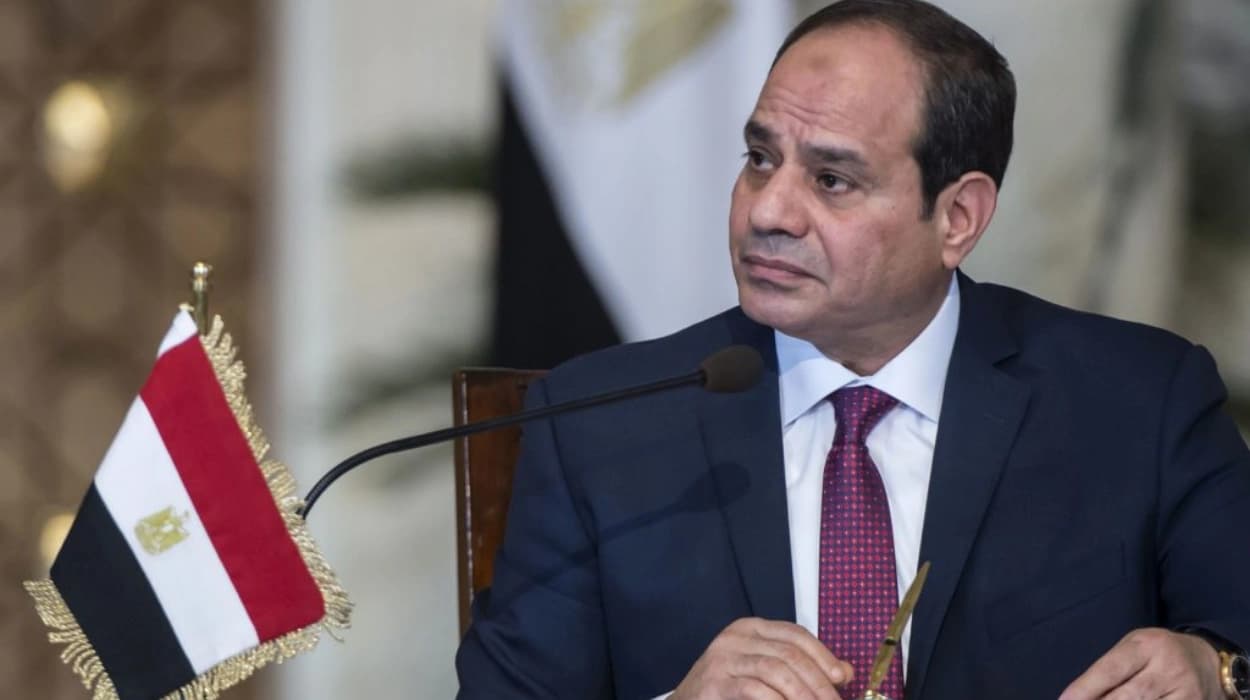Egyptian President Abdel Fattah El-Sissi has described U.S.
President Donald Trump’s Middle East peace proposal as the “last chance” for
achieving peace in the region. The two leaders co-chaired a summit in Sharm El
Sheikh, Egypt, heralding the ceasefire in Gaza and the release of hostages,
while outlining a vision for stabilising and rebuilding the area post-conflict.
Summit in Egypt Highlights a Historic Moment for Middle East Peace
At a high-profile summit in the Egyptian resort of Sharm El
Sheikh on October 13, 2025, Egyptian President Abdel Fattah El-Sissi emphasised
that President Trump’s peace plan represents the last opportunity to bring
lasting peace to the Middle East. Speaking alongside President Trump, El-Sissi
reaffirmed the Palestinian right to an independent state based on a two-state
solution, which remains central to the peace framework they jointly support.
The summit aimed at consolidating the ceasefire agreement reached earlier to
end the devastating Israel-Hamas war and paved the way for reconstructing the
Gaza Strip.
President Trump described the Mideast as “the biggest, most
complicated deal” with the potential to avert major future conflicts such as a
feared “World War III.” He hailed the ceasefire and peace agreement as
“historic” and stressed the collective efforts of Arab and Muslim leaders,
including Egypt’s pivotal role, in bringing Israel and Hamas to the negotiating
table.
The Ceasefire and Hostage Release: A Critical Step Forward
The summit followed the confirmation of the release of the
last 20 surviving Israeli hostages held in Gaza by Hamas, a major breakthrough
in the conflict. The release was facilitated through a deal that included
Israel committing to release approximately 2,000 Palestinian prisoners from
Gaza. This exchange was coordinated with the involvement of the International
Committee of the Red Cross, which was visible at Gaza’s southern border to
oversee the handover of hostages and the remains of deceased captives.
President Trump credited Egyptian President El-Sissi and
Egypt’s leadership for their instrumental role in mediating with Hamas, noting
that the group “respects” the Egyptian government. Trump’s statements
highlighted Egypt’s importance in maintaining influence over Hamas to ensure
the deal's implementation.
Challenges Ahead: Governance, Disarmament, and Regional Stability
While the immediate crisis—hostage release, ceasefire, and
prisoner exchange—has seen progress, significant hurdles remain. These include
how to disarm Hamas, establish a stable governance structure for Gaza, and
determine the extent and timing of Israel’s withdrawal from the territory. The
peace plan proposed by President Trump envisions the creation of a new
Palestinian security force under international supervision involving regional
and global actors to maintain stability and oversee a gradual Israeli pullback.
Asserting the need for long-term stability, President
El-Sissi reiterated that the Palestinians possess the right to their own state,
tying it closely to ongoing efforts for peace and reconstruction. President
Trump and El-Sissi’s joint coordination reflects a US and Egyptian partnership in
progressing this complex agenda for regional peace.
Global and Regional Leaders Assemble for Peace
More than 20 world leaders gathered at the summit alongside
President Trump and President El-Sissi. Notable attendees included Turkish
President Recep Tayyip Erdogan, Qatar’s Emir Sheikh Tamim bin Hamad Al Thani,
British Prime Minister Keir Starmer, German Chancellor Friedrich Merz, Italian
Prime Minister Giorgia Meloni, and Canadian Prime Minister Mark Carney. Israeli
Prime Minister Benjamin Netanyahu declined to attend due to Jewish holiday
observances.
The gathering marked an unprecedented moment of cooperation
among Arab, Muslim, and Western leaders aimed at ending the two-year conflict
in Gaza. The summit also served as a platform to endorse Trump's 20-point peace
plan while acknowledging the need for comprehensive dialogue to address
unresolved issues.
Humanitarian Aid and Reconstruction Efforts Under Way
Following the ceasefire, several humanitarian organisations
prepared to deliver critical aid that had been withheld for months to the 2.3
million people living in Gaza. The summit also emphasised the importance of
rebuilding the devastated Palestinian territory in the aftermath of
hostilities. Egypt has previously put forth a post-war strategy advocating for
Gaza’s population to remain, which contrasts with parts of Trump’s plan
suggesting population reductions.
Responses and Concerns from Stakeholders
While the peace process has garnered broad support, the
Hostages and Missing Families Forum—representing Israeli hostage families—urged
a suspension of the peace deal until all deceased individuals held by Hamas are
returned. They stressed that any breach of the agreement should provoke a
serious response.
US Secretary of State Marco Rubio publicly acknowledged
Egypt's essential role in the peace implementation phase, praising Cairo's
“phenomenal participation” and predicting its continued prominence in shaping
the Middle East’s future security and political landscape.
Key Figures and Diplomats Supporting the Peace Process
Special envoy Steve Witkoff and President Trump’s son-in-law
Jared Kushner played pivotal roles behind the scenes in coordinating with
regional leaders. Their longstanding relationships with Israel, Qatar, Saudi
Arabia, and Egypt were instrumental in facilitating dialogues that culminated
in the ceasefire and peace summit. Trump also noted that his close ties to
Erdogan were critical in aligning regional powers to support the deal.
A Fragile but Significant Opportunity for Peace
The summit in Egypt, chaired by Presidents Donald Trump and Abdel Fattah El-Sissi, represents a significant diplomatic milestone for the Middle East peace process. While the ceasefire and hostage release provide cautious optimism, addressing the enduring political and security challenges in Gaza and the broader region will require sustained effort, regional cooperation, and international support. Both leaders have underscored the urgency and finality of this opportunity, marking the peace proposal as the “last chance” to bring stability to a long-troubled region.
